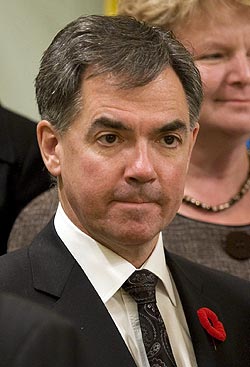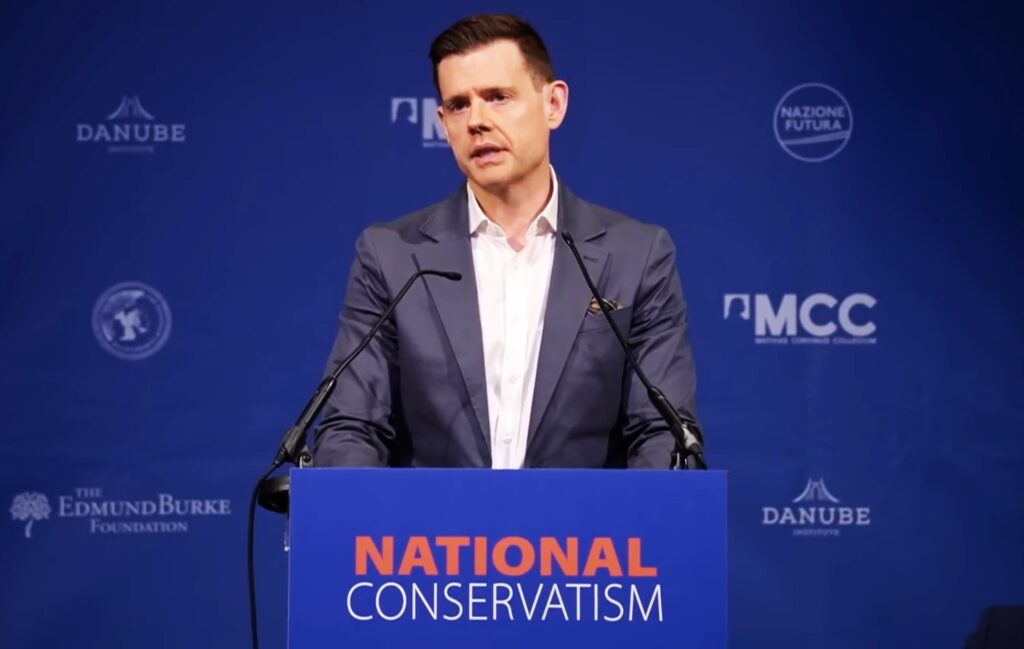But in Poznan, that can be a good thing; For some governments, it’s the whole point
Poland is a kaleidoscope of consonants. For an English speaker, accustomed to passing idle time by reading signs and advertisements, Poznan’s landscape is resolute in not surrendering meaning. Every word is a jumble of hard letters bumped together in a way that is, at first blush, entirely unintelligible.
But patience commands its own rewards. If you keep looking, you begin to see the familiar embedded in the strange. You can get lunch at the delicatesy, pay your hotel bill at recepcja or search for English-language programming on the telewizja – and if nature calls, the guys just have to be sure to go through the door marked dzentelmeni. Nothing to it.
No such clarity lurks in the halls of the United Nations Framework Convention on Climate Change. Here, in the rabbit-warren of buildings cast across the Poznan fairgrounds, the 3,000 delegates and 5,000 observers have all agreed on a common language (English), but there seems to be a contest among participants to use that tongue to prevent, rather than enhance, understanding.
This, presumably, is not the case in the actual negotiations, where meaning is tortured out of every word – where every text is patted down or strip-searched lest it conceal a misunderstanding.
But standing in public forums, insubstantial political bromides are the order of the day. For example, Australian Environment Minister Penny Wong, who is leading Australia’s retreat from Prime Minister Kevin Rudd’s brief flirtation with climate policy leadership, said in her address to the plenary yesterday that Australia wanted “collective action,” winning derision all around by failing to make any reference to what kind of collective action she might actually support.
Canadian Environment Minister Jim Prentice was also using the “key messages” approach to communication, proffering pat and prepared answers, almost irrespective of the questions that he was asked.
“Guided by our shared vision of a low carbon future, and by working together, I am confident that we can place our planet on a new path of sustainability and economic progress,” he said in his own plenary speech. Then he listed “clean coal,” and “cleaner natural gas basins in the north” among his proposals for Canada’s climate change response. Someone should explain to the minister the implications of the word “fossil” in the term “fossil fuel.”
Actually, ministerial understanding also came up as a question earlier in the week. In a technical briefing to environmental non-governmental organization observers, someone from the Canadian Climate Action Network asked whether Minister Prentice had been briefed on the science of climate change.
(Yes, it sounds like a stupid question, but Conservative MP Rona Ambrose – the environment minister twice removed – quite famously declined a briefing from Environment Canada scientists. Her successor, John Baird, was also suspected of making sure that his mind was uncluttered by scientific facts that would trouble someone whose job was to defend Canada’s future as a tar-sands driven “energy superpower.”)
In the briefing, Michael Martin, the Canadian Ambassador to the UNFCCC, answered that “the minister is a great consumer of briefings from his staff.”
Now, you have to credit Martin for this, and for his general ability to use language like a damp blanket that can be used to cloak understanding. The question, “has the minister been briefed on the science of climate change,” can be answered with a “yes,” or a “no.”
The lavish but ultimately inconclusive answer about Prentice being “a great consumer” can only suggest that Martin doesn’t know the answer, or knows and doesn’t want to say.
All of which raises again the difference between communications for the sake of conveying clear understanding, and communications for the sake of spin. While it is sometimes necessary to hold your hand closely in international negotiations – and in conversations with reporters – the government of Canada, at this event, is definitely tending to sp
Subscribe to our newsletter
Stay up to date with DeSmog news and alerts






